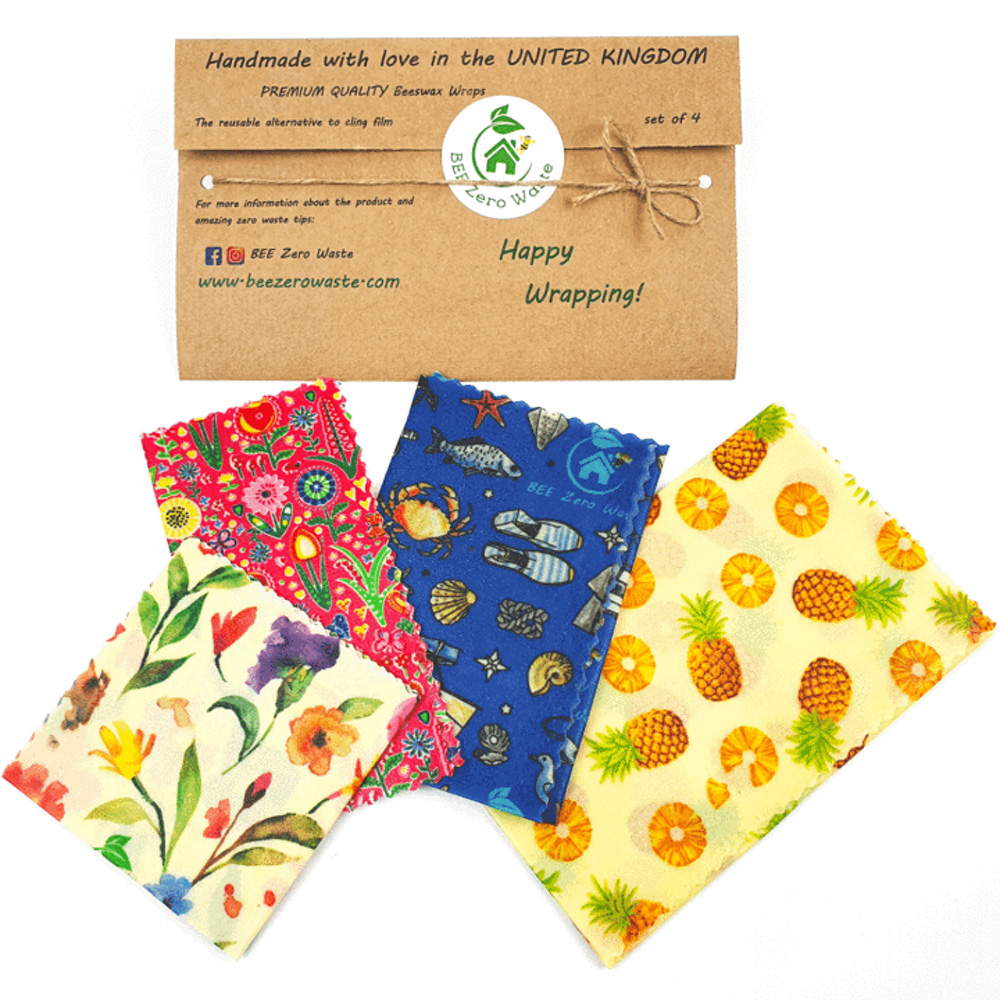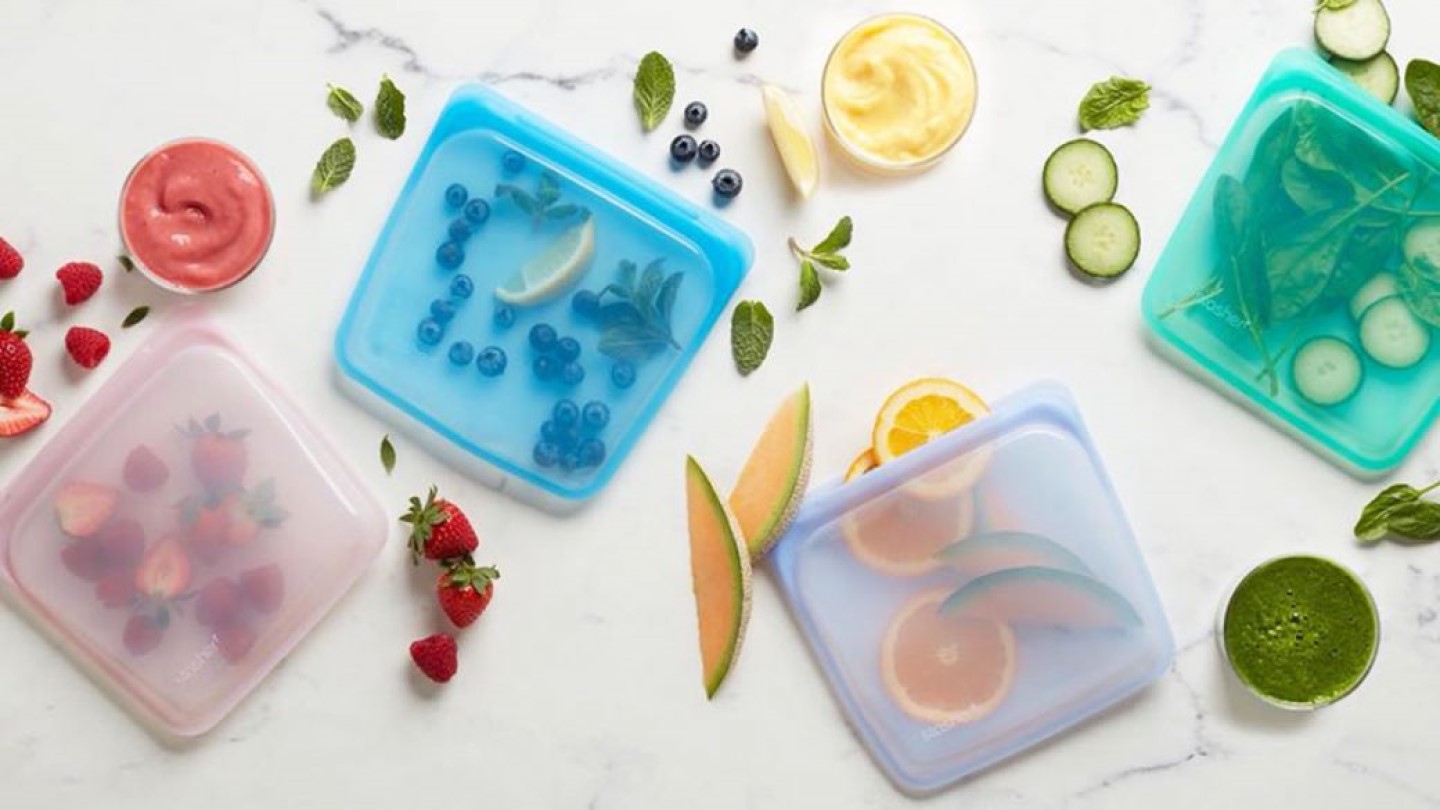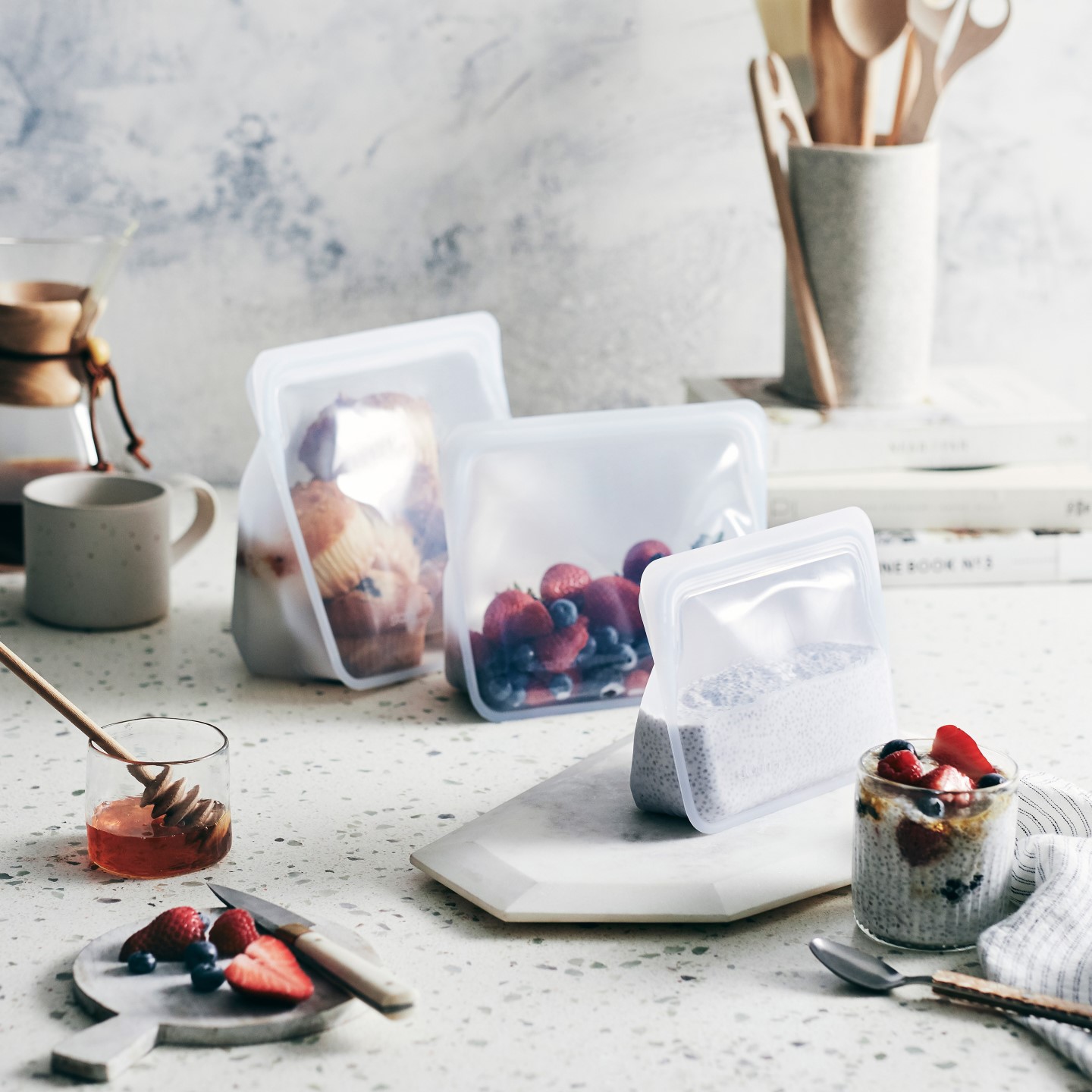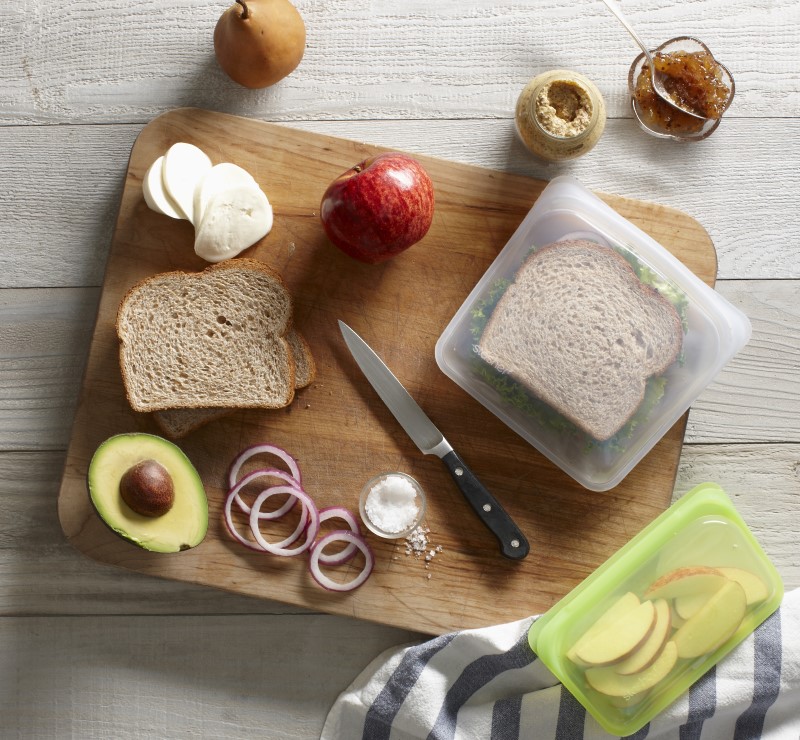The best eco swaps for plastic cling film and sandwich bags
Globally, we produce around 380 million tons of single-use plastic per year, and that’s only half of all plastic production. This is the plastic that we only use once such as clingfilm, before tossing it in the bin, likely ending up in landfill. But the good news is that there are plenty of eco-friendly, reusable alternatives available such as our Non Plastic Beach BOLL**KS to Cling Film, Stasher Bags and Beeswax Wraps.
What are they?
Non Plastic Beach BOLL**KS to cling film:
Ditch the single-use cling film for these reusable, BPA free, food grade silicone food covers. Simply pop on the cover in its original container to preserve your food, no need to transfer it into a new tupperware. This pack of six covers help you reduce your single-use plastic waste in the kitchen. They’re also cruelty-free, vegan and come in fully recyclable compostable packaging.
I love these because they’re hassle-free and can be used for anything whether it’s half a tin of beans or leftover lasagne.
These vegan food wraps are fantastic for keeping your food fresh, ideal for packed lunches. They’re made from Global Organic Textile Standard (GOTS) certified organic cotton and low impact dyes, organic jojoba oil and pine resin. This pack comes with two small wraps – ideal for pieces of fruit and vegetables, two medium wraps – ideal for a sandwich and one large wrap – ideal for covering a big dish of leftovers.
I love using a beeswax wrap to pack my sandwiches in for lunch at work.

These self-sealing storage bags are made from platinum silicone which is superior to any other silicone on the market. Designed to be endlessly reusable without degrading over time, they’re suitable for the fridge, freezer, dishwasher, microwave and a pan of boiling water up to 200 degrees Celsius.
Sizes include a pocket bag, snack bag, sandwich bag, half gallon bag and a stand up bag. Stasher bags come in handy for everything from the kitchen to travelling. I like to use my half gallon bag as a makeup bag when I’m on the go.
What makes them sustainable?
Silicone
Silicone is made from silica, a substance found in sand. This makes silicone super durable, even more so than plastic, and able to withstand extreme temperatures. It doesn’t contain any nasty toxins that plastic is known to have such as BPA (bisphenol A), making Stasher bags safe for the microwave. Plus, manufacturing silicone does not involve mining for crude oil unlike the majority of plastics, further reducing pollution.
Although it’s not biodegradable, it is recyclable and due to its strong nature, won’t break down into millions of microplastics. This will prevent the death of millions of marine life and reduce the chance of plastic ending up in our air and even dinner!
Stasher bags can also be 100% recycled by sending them back to Stasher for free. They’ll be repurposed and you won’t have to worry about where they end up when you eventually dispose of them. Additionally, Stasher is a certified B Corporation, meaning that it adheres to the highest social and environmental standards.

Organic cotton:
These beeswax wraps are produced according to GOTS leading standards – made to define worldwide recognised requirements for organic textiles. GOTS takes into account everything from the harvesting of raw materials, to environmentally and socially responsible manufacturing, to labelling and packaging.
To carry the GOTS organic label, a product must contain a minimum of 95% certified organic fibres. The Beeswax Wrap Co use organic cotton, meaning the cotton is grown using fewer resources and without the use of harmful chemicals. This improves the health of the farmworkers and communities lead safer lives with access to clean water. The land also stays generative for longer as it won’t be heavily contaminated with chemicals.
Beeswax Wrap Co products are handmade in the UK which reduces transporting goods from overseas and therefore, reduces your carbon footprint.
Why choose these over other non-sustainable options?
Clingfilm was discovered when scientists found a residue clinging to the bottom of a beaker in the 1930s. Today, clingfilm is known as one of the worst single-use plastics available. It is generally not recyclable so most of it ends up in landfill where it will remain for many years to come.
Although handy, clingfilm contains PVC (polyvinyl chloride) and PVDC (polyvinylidene chloride), harmful chemicals that can break down in the environment. The UK uses around 1.2 billion meters of clingfilm a year, that’s 740,000 miles of it per household – enough to wrap around the entire Earth 30 times over!
You wouldn’t put harmful chemicals in your body, but covering your leftovers in clingfilm is essentially doing that. Choosing eco-friendly options such as silicone and organic cotton ensures that you’re protecting the planet and your health.
Plastic tupperware may well be a staple in your household. Although they’re reusable, it most likely contains BPA, a chemical added to a material to strengthen it. This potentially leaks into your food and can lead to health problems. In comparison, you can pop your Stasher bag in the microwave or pot of boiling water without worrying about the health implications.
Discover everything you need to know about BPA here.
If you bought a pack of 20 zip seal food bags for £2 once a month in your food shop, it would cost you roughly £24. But, a pack of our five reusable beeswax wraps costs £24.55, only 55p more! That 55p difference will save the planet tones of plastic pollution, save millions of marine life and positively impact your health. Plus, with a refresher block, you can keep your beeswax wraps in top-notch condition.

Why choose these over other sustainable options?
Paper bags are commonly used in the replacement of plastic bags. Pitted against each other, paper bags are more environmentally friendly. However, paper bags are far less durable than plastic, meaning you may have to replace them more frequently. Overall, buying more and disposing of more paper bags turns out to be less eco-friendly than reusing plastic.
Glass tupperware or jars are also common and better for the environment than plastic. It is biodegradable and can be used for an array of food and drink storage. However, it can take up a lot of space in the fridge and it’s not always convenient to carry a glass tupperware on the go.
Although Stasher bags are fairly pricy in comparison to tupperware and clingfilm, costing £18.50 for the Stand Up Stasher – the biggest in the range. However, Stasher bags are endlessly reusable, chemical-free and flexible.
Find out why Stasher bags are so expensive here.

Wrap your sandwiches the eco-friendly way
Check out our eco-friendly kitchen collection containing the best plastic alternatives on the market right now, chosen especially by us to help you reduce your carbon footprint. Set an example as you head back to the office and choose one of our clingfilm and sandwich place eco replacements.

